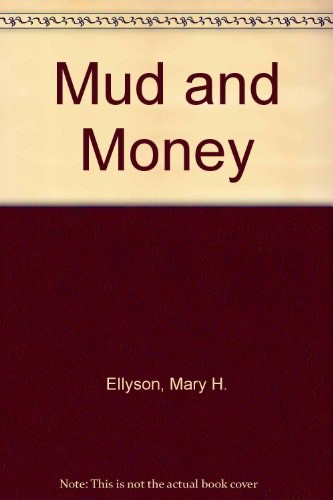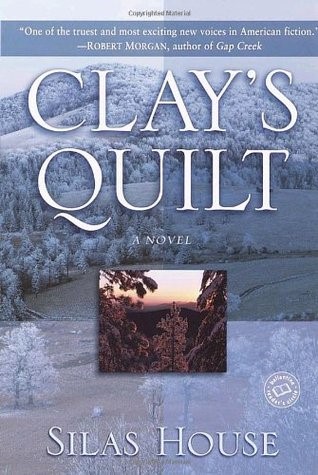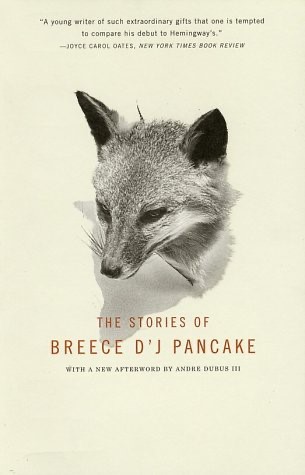3 Recently Read Appalachian Books
Posted by Admin.July 26th, 2021
Blog post by Linda Blake, University Librarian Emerita, WVRHC
I continue to enjoy histories related to areas where I grew up, the Appalachians, West Virginian specifically. In this blog post I describe three novels set here. All the books are available in the West Virginia University Libraries as well as in many West Virginia public and college libraries.
The first book, Mud and Money, delivers a multi-generational family saga set during the gas and oil well boom in Gilmer County. The second and third books, Clay’s Quilt and The Stories of Breece D’J Pancake, are firmly about masculinity. The characters are males in their twenties and the novels are about their coping in Appalachia. Strong women characters are not absent from these two books, but the stories really revolve around men.

Mud and Money centers around the oil and gas boom in Gilmer County, West Virginia, before, during, and after the WWI years. Ellyson writes about the impact of the oil and gas industry on the lives of the people. She details descriptions of the functioning of the wells and drilling and provides an historical record of the industry’s early days. This passage in the first pages of the book, gives the reader a portent of the impact of the oil and gas industry on farming communities.
Bed clothes were sunning in the yard, while downy little chicks peeped contentedly in the sun in the wake of the proud mother. When the deafening roar filled the little universe, it was changed for ever [sic] more. Immediately everybody stopped work and listened, fear chilling their hearts, for always sounds that are unfamiliar have brought great fear to the human race.
Central West Virginians will particularly appreciate the descriptions of the hardships, family life, struggles, and culture of early 20th century farm life as well as the vivid descriptions of the beauty and peace in the mountains. Through the story of the Mills family and others in the small community of Tanner, the novel personalizes the impact of industrial development.
While many characters are stereotypical in Mud and Money, such as the self-sacrificing mother, the wise old granny, the plodding father, the characters are also likable, despicable, and human. The reader will find herself cheering them on, except for the despicable fellow. The plot lines will keep you reading as you follow the struggles of the Mills family and their neighbors through generations.
The early oil and gas industry in West Virginia is well documented in the WVRHC through books and archival collections. To search the archives as well as for books, photographs, and printed ephemera, visit the WVRHC web page.

Clay’s Quilt, the first of three companion novels by Silas House, are all set in rural Kentucky and include some of the same characters. The other two books are A Parchment of Leaves and The Coal Tattoo.
Clay is Clay Sizemore, a coal miner. The book demonstrates the quilt of his life made up of the squares of his relationships with family and friends. At the root of the story is the impact of his mother being killed when he was four years old and how that tragedy reverberates through time. Other central characters in the book include Aunt Easter who raised Clay; the wild Evangeline, his friend since childhood; Alma, the troubled fiddle player; and Cake, another long-time friend. All of these contribute to the uniquely Appalachian story of growing up in coal country.
One of Silas House’s best talents is scene description, and although he sets a mood with his lovingly crafted descriptions of nature and the mountains,
The top of the mountain was lit with a silver glow, and the clouds above the moon were streaks of white, liquid light. He considered the mountain and felt like climbing it. He hadn’t been up there at night in ages. He heard it calling to him, telling him that if he would go up those old paths, he might see something that would answer one of his many questions, but he turned away…
I particularly identified with this lively church scene:
God was loose in the church house, and the Holy Ghost ran rampant among the people, sizzling through the air and hitting the women until they were forced to shake with wild abandon, succumbing to the spirit, throwing their heads back and speaking in unknown tongues, dancing out into the pews and rushing round and round the church, swaying like waterless swimmers in front of the alter, screaming loudly and taking off to run up and down the aisle.
Give House’s books a try for vivid descriptions of our mountains and for a good story with readily identifiable Appalachian characters.

Breece D’J Pancake was just a fabulous writer. His stories are also steeped in maleness and coal country and offer an unquestionable and impactful literary style which continues to be read and studied since Pancake’s death at 26 years old in 1979. The West Virginia and Regional History Center holds the papers of Breece Pancake.
Pancake vividly uses strong metaphors and analogies to describe the West Virginia of those caught in despair. For example, the search for trilobites in the first story symbolizes the unfruitful search through layers for answer to the Colly’s problems, and Prince Albert, who is both royalty and an image on a tobacco can is trapped just the same as coal miners underground. He excels at setting a tone with each word brilliantly chosen. Here he describes a fall morning before a fox hunt.
The passing of an autumn night left no mark on the patchwork blacktop of the secondary road that led to Parkins. A gray ooze of light began to crest the eastern hills above the hollow and sift a blue haze through the black bowels of linking oak branches. A small wind shivered, and sycamore leaves chattered across the pavement but were stopped by the fighting-green orchard grass on the berm.
While “Trilobites” is the most anthologized story, another one resonated the most with me. “The Honored Dead” is about the conflict in men who continue to be at war even after leaving service. The narrator has opted out of going to Vietnam, but the story is mostly about his friend who died there and the guilt and distress of taking his place in some ways. This survivor’s guilt affected a whole generation. In addition, there is the narrator’s father who still suffers from his WWII experiences and his grandfather who fought in the Mine Wars, which to West Virginians was just as impactful as any declared national conflict.
While these stories are intellectually illuminating, they are also deeply dark. Most jolting to me is the raw edge Pancake gives them using unseemly acts of violence such as hunting and killing animals, rape, and imagined murder.





